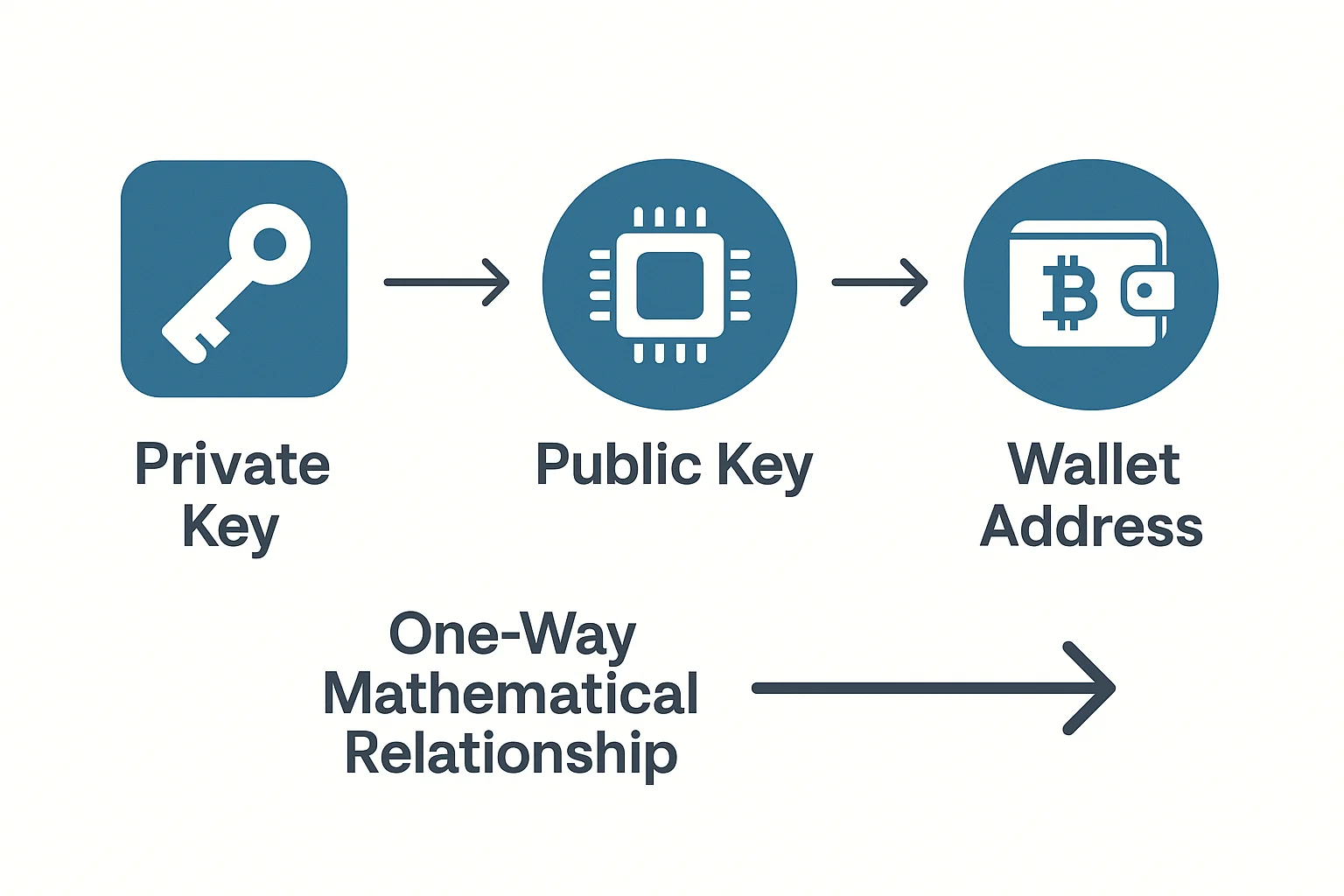Private Key
Private Key: Your Crypto’s Secret Password
Your private key is the most important thing you’ll ever own in crypto. Lose it, and your money’s gone forever. No customer service number to call.
A private key is a secret code that proves you own your cryptocurrency and allows you to spend it. It’s like the combination to a safe – except this safe holds digital money and there’s no locksmith if you forget the combination.
How Private Keys Work
Think of your private key as a super-long password – typically 256 characters of random letters and numbers. This key mathematically generates your wallet address (where people send you crypto) and creates digital signatures to authorize transactions.
Your private key never leaves your device when done right. It signs transactions locally, then broadcasts the signed transaction to the network.

Real-World Examples
- Hardware wallets like Ledger store your private keys offline in secure chips
- Paper wallets have private keys printed as QR codes
- Software wallets encrypt your private keys with passwords
Why Beginners Should Care
“Not your keys, not your crypto” – this phrase exists because exchanges and online wallets hold your private keys for you. If they get hacked, go bankrupt, or freeze your account, you’re out of luck.
Smart crypto users graduate from exchanges to self-custody. Hardware wallets like the Ledger Nano series keep your private keys secure and offline, giving you true ownership of your funds.
Related Terms: Public Key, Seed Phrase, Hardware Wallet, Cold Storage
